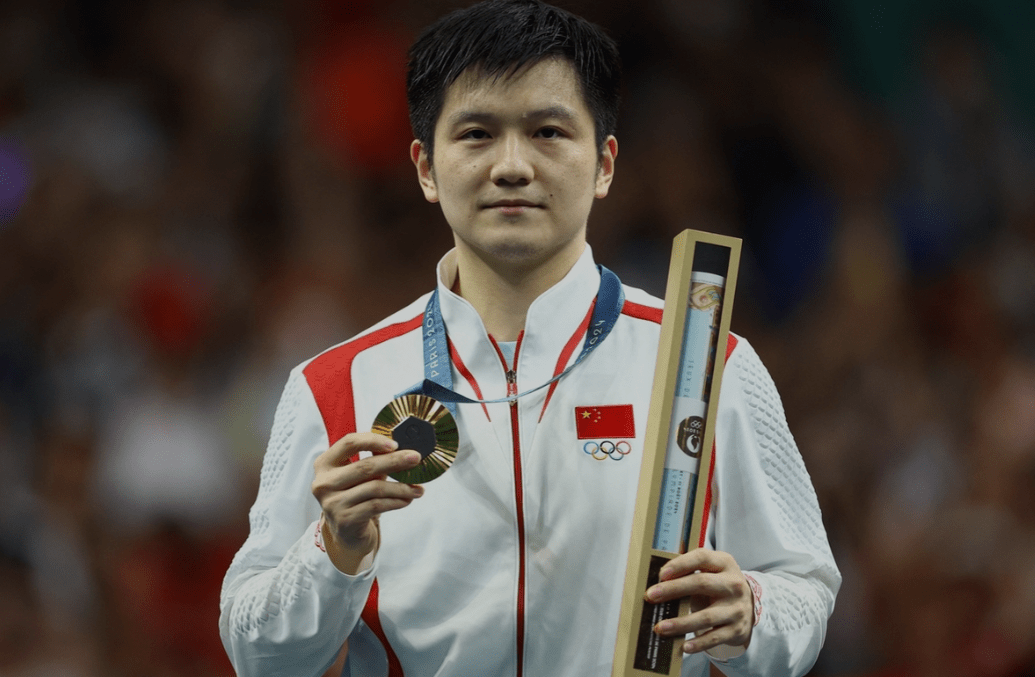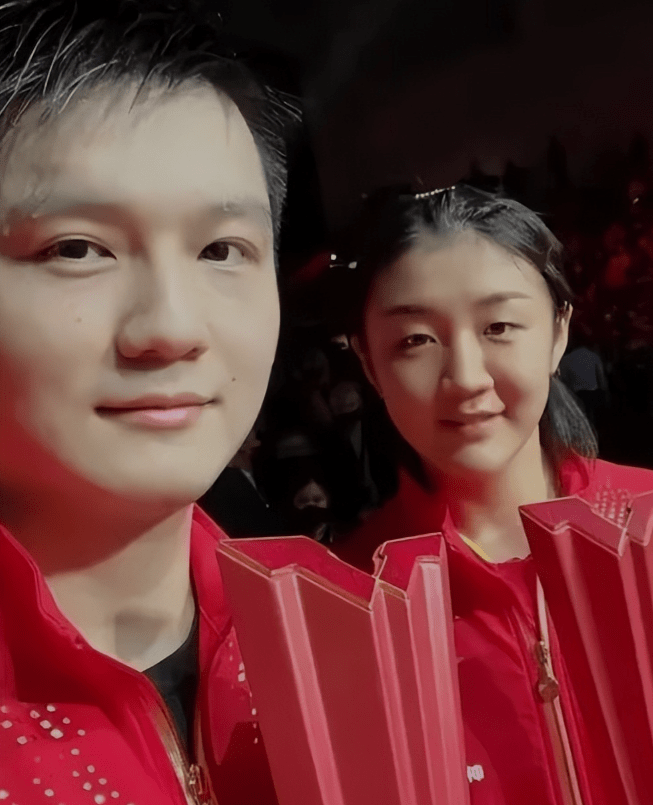In recent years, fan culture has spread vigorously in society, but are you aware that this force is quietly eroding the sports world, especially top-level sports projects like the national table tennis team? The fervent adoration of star fans seems to be a boost to the sports industry, yet its negative impacts compel us to reflect: Is this "love" more about support or causing trouble?

When it comes to the national table tennis team, what comes to mind is their illustrious record: countless gold medals, formidable strength, and the solid foundation of the "Table Tennis Kingdom." Fan Zhendong, as the leader of the national table tennis team, has repeatedly secured the world's number one ranking with his outstanding performance on the court. However, despite his numerous glories, he cannot escape the troubles brought by "fan culture." The fervent pursuit of fans not only brings glory under the spotlight but also causes more disturbances and pressure in daily life. Extreme fans' excessive interference even affects Fan Zhendong's daily life and competitive state. This issue not only troubles Fan Zhendong himself but has also drawn the attention of the General Administration of Sport, becoming a reality that the entire sports industry must confront.

The greatest harm of fan culture may be blind worship and emotional失控. Competitive sports, which should be based on strength, are influenced by this excessive emotionalization. Fans are no longer satisfied with supporting their idols on the field; they turn their attention to beyond the field, frequently interfering with athletes' private spaces and even directly impacting their lives and psychological states. Especially during the Paris Olympics, the influence of fan culture was evident: excessive idol worship placed unnecessary pressure on the athletes, even affecting their competitive states.

Why has fan culture taken root so rapidly within the sports circle? In fact, the core of fan culture is the extremity of emotions, absolute idol worship, and deep intervention into their lives. In the entertainment industry, fan culture has long been an issue that cannot be ignored. Now, the sports world is gradually becoming its "new battlefield." Every move of star athletes becomes the focus of fan culture, and their fans often create more noise behind the scenes, even vying for certain speaking rights for their idols.

Behind this phenomenon lies an imbalanced sports culture. In competitive sports, strength should be the sole criterion. However, the infiltration of fan culture has elevated the "idol effect," making fans' emotions and moods overly intense, even interfering with the competitions themselves. Especially during important matches, extreme fans' behaviors often shift the focus from the competition to the athletes' personal lives, preventing them from staying calm and focused.

Has the General Administration of Sport's rectification measures been a radical cure or mere talk? Facing the troubles of fan culture, the General Administration of Sport has finally decided to take action to rectify the situation. This move undoubtedly supports the national table tennis players and clears obstacles for the entire sports industry. By issuing policies, it explicitly requires athletes to disband their fan circles and strengthens protection of their private lives, aiming to reduce external interference to the maximum extent and restore the purity of sports events.

It is worth noting that this rectification measure is not the first of its kind. In the past decade, the General Administration of Sport has conducted multiple rectifications of bad practices in football, basketball, and other sports. This crackdown on fan culture can be seen as a part of the continuous optimization of the sports environment. In fact, with the development of society, the fan base in the sports field has long extended beyond a few hardcore fans; more people are involved, forming massive groups. This makes the influence of fan culture extend beyond the entertainment industry to the sports field, becoming part of the sports ecosystem.

To curb this chaos, the General Administration of Sport not only requires athletes to disband their fan circles but also initiates a rectification action against the entire fan culture through multi-department collaboration. The goal of this measure is to prevent fan culture from further spreading and protect the physical and mental health of athletes. At the same time, relevant departments have increased supervision of online platforms, prohibiting excessive idol worship behavior and avoiding the greater impact of fan culture on the sports competition environment.

Despite the many troubles caused by fan culture, it cannot overshadow the excellent performances of Fan Zhendong and other national table tennis players. Fan Zhendong's achievements represent the powerful strength of Chinese table tennis. Especially after the Paris Olympics, he successfully retained the world's number one ranking with stable performances, consolidating China's dominance in the international table tennis arena and inspiring countless young people to pursue table tennis.

Fan Zhendong's achievements are not only personal glory but also a reflection of the overall strength of Chinese table tennis. Starting with him, more and more young players have emerged, becoming new dream chasers in table tennis. It can be said that Fan Zhendong's success is a microcosm of the continued strength of the national table tennis team, and this sports spirit that values strength needs to be passed on and promoted by more people.
At the Paris Olympics, the women's singles final became a focal point. Although the competitive state on the field remained spectacular, the influence of fan culture on this event could not be overlooked. The classic confrontation between Chen Meng and Sun Yingsha not only showcased the fierce competition among national table tennis players but also reflected the dominance of the national table tennis team in women's events. However, the controversies and interferences from fan culture cast a shadow over this beautiful competitive scene.
This incident suggests that the competitiveness of sports is not only reflected in the skills of the athletes but also requires maintaining purity both on and off the field. Athletes should focus on training and competition rather than being swayed by external emotions. The national table tennis team needs to enjoy the glory of competition while also being wary of external factors that may interfere, maintaining a good competitive environment.
While rectifying fan culture, the national table tennis team has not stopped moving forward but instead accelerated preparations for the new Olympic cycle. In addition to technical reforms, psychological counseling has also been included in the core content of preparations. The national table tennis team helps athletes maintain their best state through closed training, tactical innovation, psychological guidance, and other methods to face future challenges.
The introduction of this new mechanism is undoubtedly a comprehensive upgrade for the national table tennis players. In the increasingly fierce international competition, only by maintaining dual advantages in technology and mentality can victory continue to be achieved in future events.
Fan chaos is not limited to the sports field; the entertainment industry has long been another "major disaster area." From entertainment stars to sports athletes, excessive idol worship and extreme fan behavior have posed potential threats to social order. Therefore, cross-field rectification of fan culture has become a complex systemic project. The government, industry, platforms, fans, and all parties need to work together to establish a healthier and more rational cultural atmosphere.
The rectification of fan culture aims to return sports to its essence; the halo of idols should not overshadow the essence of competition.